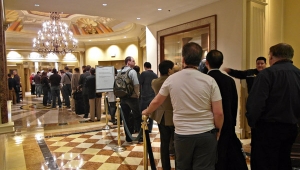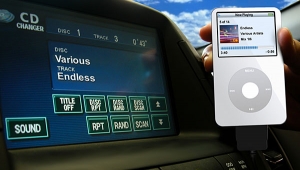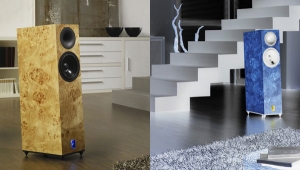| Columns Retired Columns & Blogs |
Recently I heard a Marantz SA-1 and it was so much more enjoyable to listen to than its modern counterparts, due in no small part to its mellower and apparently fuller style of presentation. I work in high-end audio and I genuinely believe CD playback has moved in the wrong direction, although the Ayre MP players are very good.


























